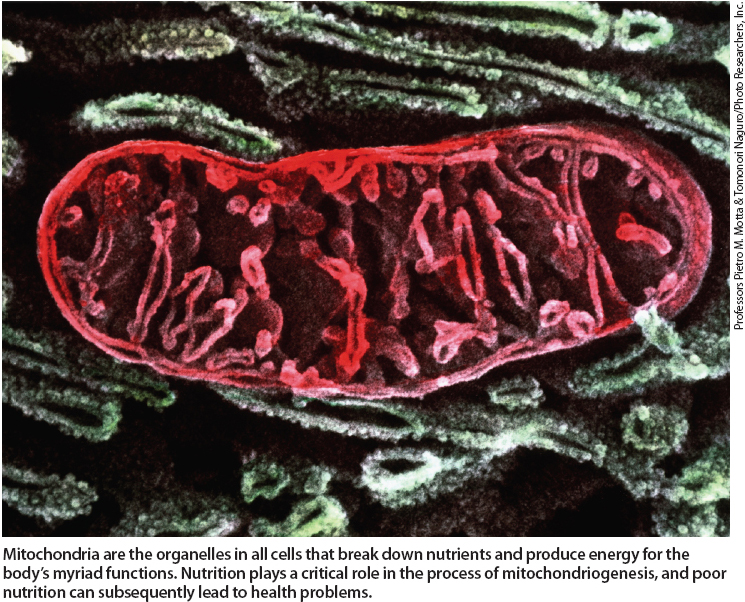Source: University of California - San Diego Apr 15, 2019 6 years, 1 week, 5 days, 44 minutes ago
Inflammation is a balanced physiological response -- the body needs it to eliminate invasive organisms and foreign irritants, but excessive inflammation can harm healthy cells, contributing to aging and chronic diseases. To help keep tabs on inflammation, immune cells employ a molecular machine called the NLRP3 inflammasome. NLRP3 is inactive in a healthy cell, but is switched "on" when the cell's mitochondria (energy-generating organelles) are damaged by stress or exposure to bacterial toxins.
However, when the NLRP3 inflammasome gets stuck in the "on" position, it can contribute to a number of chronic inflammatory conditions, including gout, osteoarthritis, fatty liver disease and Alzheimer's and Parkinson's diseases. In a new mouse study, researchers at University of California San Diego School of Medicine discovered a unique approach that might help treat some chronic inflammatory diseases: force cells to eliminate damaged mitochondria before they activate the NLRP3 inflammasome.
The study was led by senior author Michael Karin, PhD, Distinguished Professor of Pharmacology and Pathology and Ben and Wanda Hildyard Chair for Mitochondrial and Metabolic Diseases at UC San Diego School of Medicine, and first author Elsa Sanchez-Lopez, PhD, a senior postdoctoral researcher in Karin's lab.
In a 2018 study published in
Nature, Karin's team had shown that damaged mitochondria activate the NLRP3 inflammasome. The researchers also found that the NLRP3 inflammasome is de-activated when mitochondria are removed by the cell's internal waste recycling process, called mitophagy.
"After that, we wondered if we could reduce harmful excess inflammation by intentionally inducing mitophagy, which would eliminate damaged mitochondria and should in turn pre-emptively inhibit NLRP3 inflammasome activation," Karin said in an
interview with Thailand Medical News. "But at the time we didn't have a good way to induce mitophagy."
More recently, Sanchez-Lopez was studying how macrophages regulate their uptake of choline, a nutrient critical for metabolism, when she discovered something that can initiate mitophagy: an inhibitor of the enzyme choline kinase (ChoK). With ChoK inhibited, choline is no longer incorporated into mitochondrial membranes. As a result, the cells perceive the mitochondria as damaged, and cleared them away by mitophagy.
"Most importantly, by getting rid of damaged mitochondria with ChoK inhibitors, we were finally able to inhibit NLRP3 inflammasome activation," Karin said.
To test their new ability to control NLRP3 inflammasome in a living system, the researchers turned to mice. They discovered that treatment with ChoK inhibitors prevented acute inflammation caused by uric acid (accumulation of which triggers gout flares) and a bacterial toxin.
By several measures, ChoK inhibitor treatment also reversed chronic inflammation associated with a genetic disease called Muckle-Well Syndrome, which is caused by mutations in NLRP3 genes. One such measure is spleen size -- the larger the spleen, the more inflammation. The spleens of Muckle-Well Syndrome mice are on average twice as large as normal mice, but their spleen sizes normalized after ChoK inhibitor treatment.
NLRP3 inflammasome promotes inflammation because
it triggers the release of two very potent pro-inflammatory molecules called cytokines: interleukin (IL)-1β and IL-18. According to Karin, there are existing drugs that can block IL-1β, but not IL-18. ChoK inhibitors, his team found, can reduce both cytokines.
"There are several diseases, including lupus and osteoarthritis, whose treatment will likely require dual inhibition of both IL-1β and IL-18," Karin said.
Reference:
Elsa Sanchez-Lopez, Zhenyu Zhong, Alexandra Stubelius, Shannon R. Sweeney, Laela M. Booshehri, Laura Antonucci, Ru Liu-Bryan, Alessia Lodi, Robert Terkeltaub, Juan Carlos Lacal, Anne N. Murphy, Hal M. Hoffman, Stefano Tiziani, Monica Guma, Michael Karin. Choline Uptake and Metabolism Modulate Macrophage IL-1β and IL-18 Production. Cell Metabolism, April 11, 2019; DOI: 10.1016/j.cmet.2019.03.011/
